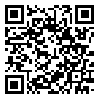Volume 23, Issue 4 (10-2024)
TB 2024, 23(4): 67-79 |
Back to browse issues page
Ethics code: IR.IUMS.REC.1400.172
Download citation:
BibTeX | RIS | EndNote | Medlars | ProCite | Reference Manager | RefWorks
Send citation to:



BibTeX | RIS | EndNote | Medlars | ProCite | Reference Manager | RefWorks
Send citation to:
Fatemi aghda S A, Hazhir S, Langarizadeh M. Determining Information Requirements for a Mobile Self-Care App for Chronic Kidney Disease Patients. TB 2024; 23 (4) :67-79
URL: http://tbj.ssu.ac.ir/article-1-3652-en.html
URL: http://tbj.ssu.ac.ir/article-1-3652-en.html
School of Health Management and Information Sciences, Iran University of Medical Sciences, Tehran, Iran , langarizadeh.m@iums.ac.ir
Abstract: (905 Views)
Introduction: Chronic kidney disease is a common condition that affects a person's entire life after diagnosis. Self-care using a mobile phone helps to improve the management and ease the disease. This study aims to identify the educational content needed to design a self-care mobile application for chronic kidney disease patients.
Methods: This applied study was conducted using a descriptive method. The tool used was a researcher-made questionnaire, which was validated for reliability and validity. The study population consisted of nephrologists and general surgeons, from which 25 participants were randomly and purposefully selected from the nephrology clinics of Tehran and Kurdistan University of Medical Sciences. Data analysis was performed using descriptive statistics with SPSS software version 19.
Results: The educational content of the application was organized into three main axes, comprising 28 educational needs: Disease information, including understanding kidney function, stages of disease progression, and early and primary signs and symptoms; medications, encompassing familiarity with prescribed medications, drug interactions, and the importance of accurate and timely medication intake; and lifestyle and personal habits, covering healthy nutrition, weight management, and work-related issues. However, topics such as diagnostic methods, various tests, drug side effects, dietary regimens, nutritional energy tables, and opioid use were not deemed essential.
Conclusion: The educational needs serve as the first step in designing a self-care application for chronic kidney disease education. By defining the technical capabilities and various features of the application, patient awareness and adherence to desirable self-care behaviors will improve.
Methods: This applied study was conducted using a descriptive method. The tool used was a researcher-made questionnaire, which was validated for reliability and validity. The study population consisted of nephrologists and general surgeons, from which 25 participants were randomly and purposefully selected from the nephrology clinics of Tehran and Kurdistan University of Medical Sciences. Data analysis was performed using descriptive statistics with SPSS software version 19.
Results: The educational content of the application was organized into three main axes, comprising 28 educational needs: Disease information, including understanding kidney function, stages of disease progression, and early and primary signs and symptoms; medications, encompassing familiarity with prescribed medications, drug interactions, and the importance of accurate and timely medication intake; and lifestyle and personal habits, covering healthy nutrition, weight management, and work-related issues. However, topics such as diagnostic methods, various tests, drug side effects, dietary regimens, nutritional energy tables, and opioid use were not deemed essential.
Conclusion: The educational needs serve as the first step in designing a self-care application for chronic kidney disease education. By defining the technical capabilities and various features of the application, patient awareness and adherence to desirable self-care behaviors will improve.
Type of Study: Applicable |
Subject:
Health information technology
Received: 2024/05/3 | Accepted: 2024/09/18 | Published: 2024/11/18
Received: 2024/05/3 | Accepted: 2024/09/18 | Published: 2024/11/18
Send email to the article author
| Rights and permissions | |
 |
This work is licensed under a Creative Commons Attribution-NonCommercial 4.0 International License. |







